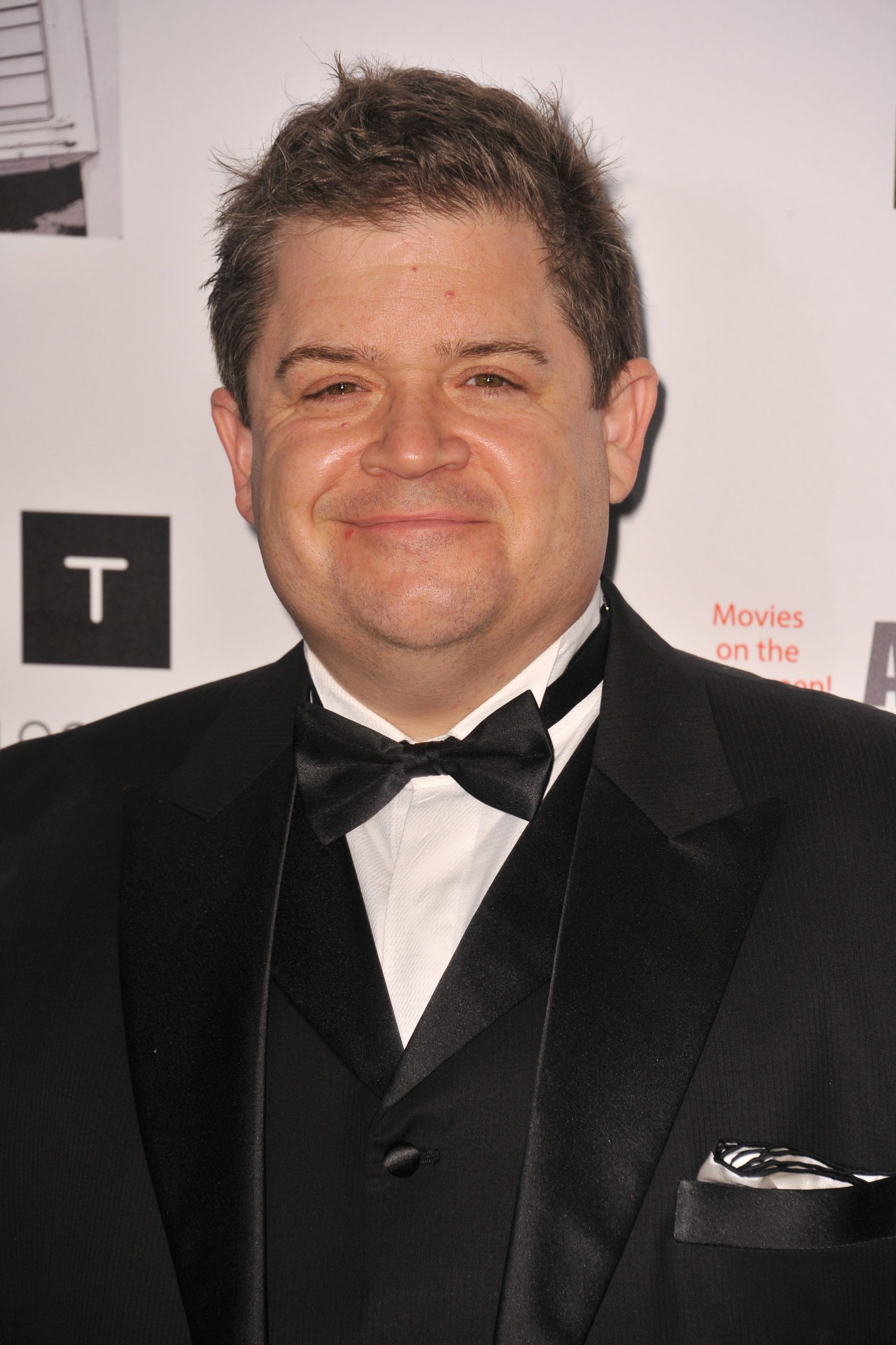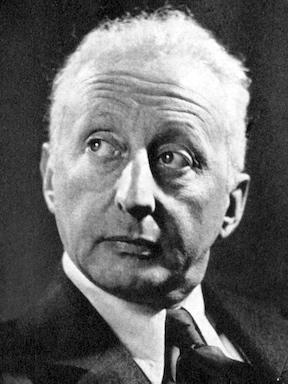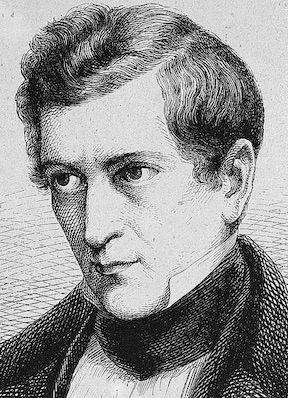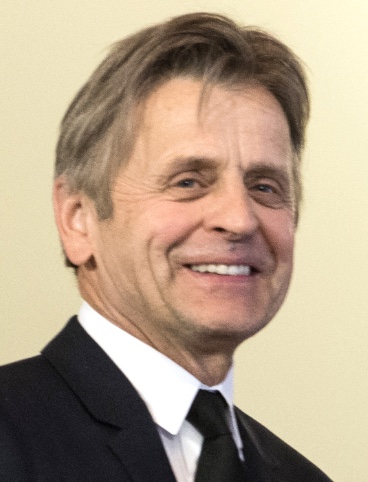January 27
Patton Oswalt

On this date in 1969, Patton Oswalt was born in Portsmouth, Va. His father was a Marine Corps officer who named him after Gen. George S. Patton. Oswalt began to perform stand-up comedy in the late 1980s, before graduating from the College of William and Mary in 1991. He became widely known after he starred in an HBO comedy special in 1996. He began to headline at comedy clubs nationwide and also started his career as an actor.
Much of his comedic material addresses popular culture and his daily life, but he has been known to mock religion and religious believers. For example, his “Sky Cake” routine characterizes religion as a trick played by smart weak guys on big dumb guys. He describes himself as an atheist.
From 1998 to 2007, Oswalt was a regular on the CBS show “The King of Queens,” playing the role of Spence. He has appeared in many small roles in movies, as a guest star on television shows including “Dollhouse” and “Nurse Jackie,” and done voice work for movies, television and video games. Notably, he voiced the main character, the rat Remy, in the 2007 Pixar film “Ratatouille.” He also starred in the 2009 live-action film “Big Fan.”
His supporting role in Jason Reitman’s black comedy “Young Adult” (2011) was nominated for several awards. Oswalt has also written for TV and film, as well as doing uncredited work on a variety of live-action comedy and animated film scripts.
In 2011 Oswalt released the book Zombie Spaceship Wasteland and appeared in “A Very Harold & Kumar 3D Christmas.” He originated the role of Billy Stanhope on “Two and a Half Men.” His memoir Silver Screen Fiend: Learning About Life from an Addiction to Film was published by Simon & Schuster in 2015, when it was announced he would appear in the reboot of “Mystery Science Theater 3000.” His comedy special “Talking for Clapping” was released on Netflix in 2016 and his special “Annihilation” followed in 2017 on Netflix.
Oswalt married true-crime writer Michelle McNamara in 2005 and they had a daughter, Alice, in 2009. McNamara had a very sad, untimely end at age 46 in 2016. He married actress Meredith Salenger the following year.
“My feelings on religion are starting to morph. I’m still very much an atheist, except that I don’t necessarily see religion as being a bad thing. … I’m almost saying certain people do better with religion, the way that certain rock stars do better if they’re shooting heroin.”
— Oswalt, The Onion A.V. Club (Aug. 31, 2011)
Jerome Kern

On this date in 1885, songwriter Jerome David Kern was born in New York City to Fanny (Kakeles) and Henry Kern. His mother, of Bohemian heritage, was born in the U.S. and his father was born in Germany. Although they both had been raised Jewish, “[t]heir marriage at Temple Emanu-El was the last religious function in either of their lives,” wrote Kern biographer Michael Freedland. They gave their son no religious training.
Kern started playing the piano at a young age. He left high school after his junior year, studied at the New York College of Music, then at Heidelberg University in Germany. At the age of 20 in 1905, Kern composed his first hit song and in 1912 wrote his first Broadway score. The Broadway musical “Showboat” (1927) broke ground by integrating music with story.
Due to Kern’s remarkable musical influence, he became known as “father of the American musical theater.” Kern, a composer who worked with a variety of lyricists, eventually paired up with lyricist Dorothy Fields. They won the 1936 Academy Award for Best Song with “The Way You Look Tonight” from the movie “Swing Time.” In 1941 he and Oscar Hammerstein II won an Oscar for best song for “The Last Time I Saw Paris,” from the film “Lady Be Good.” Their last Broadway collaboration was in “Very Warm for May” (1939), a show that 9-year-old Stephen Sondheim watched enrapt.
He wrote close to 700 songs and more than 100 complete scores for both shows and films. Kern classics include “They Didn’t Believe Me,” “Look for the Silver Lining,” “Old Man River,” “Can’t Help Lovin’ That Man,” “Make Believe,” “Smoke Gets in Your Eyes,” “I Won’t Dance,” “A Fine Romance,” “The Way You Look Tonight,” and “All the Things You Are.”
While working on the musical “Annie Get Your Gun,” a project initiated by Fields, Kern had a stroke while walking in New York City and died a few days later at age 60. Hammerstein was with him when he breathed his last in the hospital and hummed “I’ve Told Ev’ry Little Star” into his ear. (D. 1945)
PHOTO: Kern in 1934.
“His religion was his music and his lifestyle — his enjoyment of elegance and his voracious appetite for having a good time.”
— "Jerome Kern: A Biography" by Michael Freedland (1981)
David Friedrich Strauss

On this date in 1808, theologian and author David Friedrich Strauss was born in Ludwigsburg, Germany, the son of a merchant. He pioneered scholarship questioning the historicity of Jesus. Strauss became a Lutheran vicar in 1830 and studied theology under Hegel. He was appointed to the Theological Seminary at the University at Tubingen. His two-volume work Das Leben Jesu kritisch bearbeitet (The Life of Jesus Critically Examined (1835) dissected the New Testament as largely mythical and was published to great acclaim but lost him his teaching post. The British freethinking novelist George Eliot translated its fourth edition in 1860 into English.
In 1836 he left the church. In 1841 he married mezzo-soprano opera singer Agnese Schebest. They divorced in 1846 after having two children. In his final book, The Old Faith and the New: A Confession (1872), Strauss eschewed Christianity and the concept of immortality to embrace materialist philosophy. (D. 1874)
Mikhail Baryshnikov

On this date in 1948, Mikhail Nikolaevitch Baryshnikov was born in Riga, Latvia. His father was an engineer and his mother was a seamstress who introduced him to ballet when he was 9. A strong athlete, Baryshnikov played sports in school but turned completely toward ballet when he was 12 after his mother committed suicide. At 15 he began studying with the Kirov Ballet, where he stayed for the next five years under the direction of Alexander Pushkin.
He became Kirov’s principal dancer at age 21 and began earning recognition for his strong technique and gravity-defying leaps. While on tour in Canada at age 26, he defected to America. Granted political asylum, Baryshnikov began working as principal dancer with the American Ballet Theatre (ABT) in New York, where he stayed for five years before joining the New York City Ballet. Working under George Balanchine and Jerome Robbins, he expanded his repertoire, as well as the role of male dancers in ballet. He then returned to ABT as principal dancer as well as artistic director, a position he held for 10 years.
In 1990 he teamed with choreographer Mark Morris to found the White Oak Dance Project and, in 2005, opened the Baryshnikov Arts Center in New York. Observing that the challenge of dancing different choregraphies and styles is similar to learning a new language, Baryshnikov wrote in his 1976 autobiography, “Every ballet, whether or not successful artistically or with the public, has given me something important. Everything that I’ve done has given me more freedom.” (Baryshnikov at Work).
He has appeared in the films “Turning Point” (1977) and “White Nights” (1985), on Broadway (“Metamorphosis”) and on television, in a regular role on HBO’s “Sex and the City.” Baryshnikov has been awarded the Kennedy Center Honors Lifetime Achievement Award (2000), Outer Critics Circle Award for Best Actor in a Play (1989), an Emmy for Outstanding Variety or Music Program (1979-80), an Emmy for Outstanding Individual Achievement-Special Events (1978-79) and an Oscar for Best Supporting Actor (1977).
Baryshnikov has four children, the oldest with actress Jessica Lange and the three youngest with ballerina Lisa Rinehart. They married in 2006 and live in New York as of this writing.
PHOTO: Baryshnikov in 2017; photo under CC 2.0.
"I don’t believe in marriage in the conventional way. I am not [a] religious person, and marriage in front of [the] altar wouldn’t say anything to me."
— interview, CNN "Larry King Weekend" (May 5, 2002)
